Babylon Villeneuve: How Ukrainian Cinema Is Conquering France
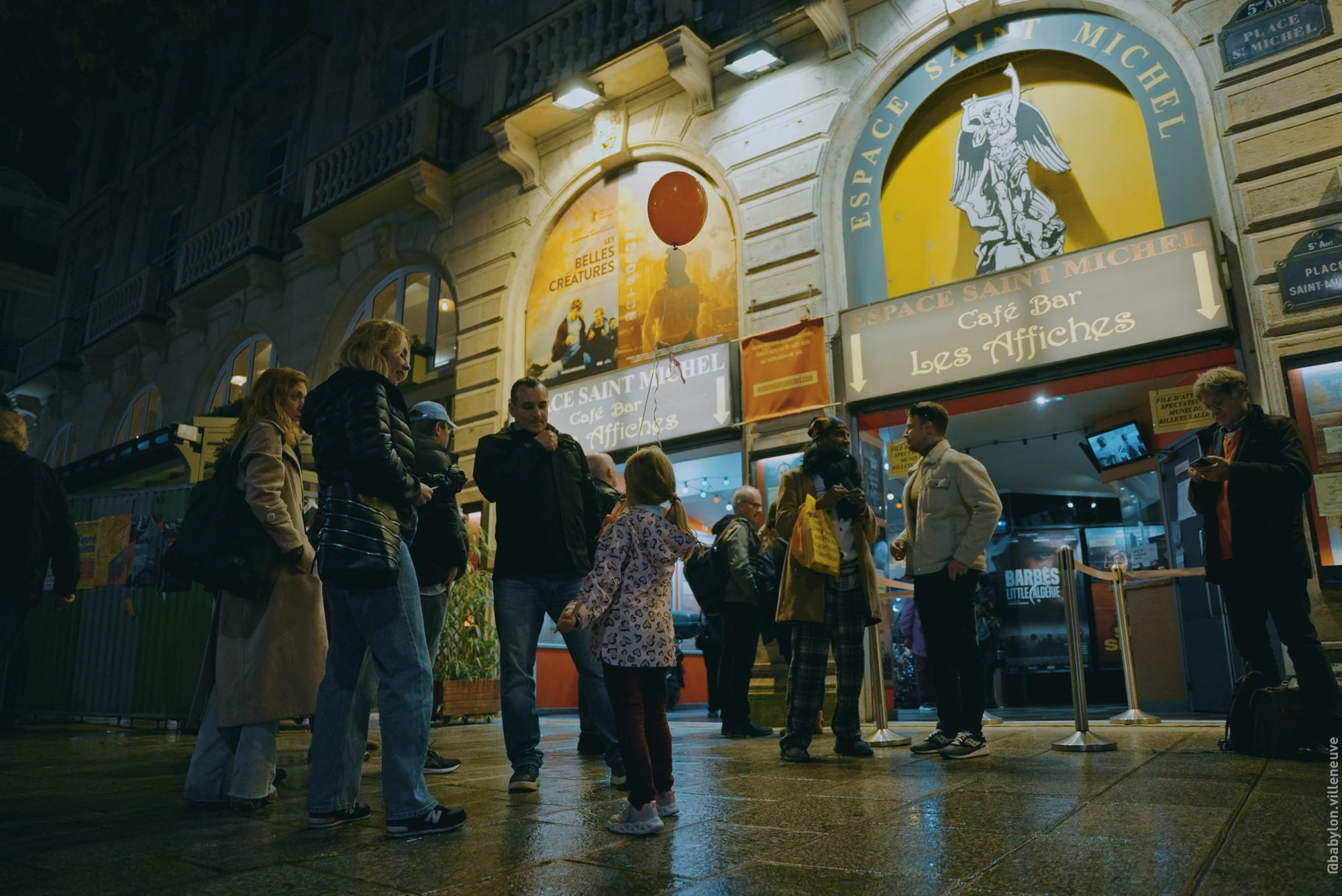
Ukrainian films are typically translated into English, leaving the Francophone world on the sidelines. But can France—a key player on the European stage and a country with deep cinematic traditions—remain in an information vacuum when it comes to modern Ukraine? The answer is obvious. That’s why the filmmakers of Babylon’13, in partnership with Maison Ukrainienne, launched the Babylon Villeneuve project.
But is simply translating a film enough for a French audience to start watching it? Can Ukrainian documentary cinema break through the walls of French cinema, which so carefully preserves its uniqueness? And what do French viewers feel when they leave the screening—tears in their eyes, questions in their minds that had never occurred to them before?
When Cinema Is More Than Just Cinema
Babylon Villeneuve is not just a series of cinema screenings; it is an attempt to reshape how Ukraine is perceived in the Francophone world. France has a powerful cinematic tradition, with audiences accustomed to high-quality auteur films. So when they are presented with documentaries about war, life under bombardment, or the fight for freedom, it is not just another film on their must-watch list—it is a new reality that forces them to think.
Over the past two years, the project has organised 14 unique events in Paris and Brussels. The screenings took place in some of France’s most iconic cinemas: Studio 28, L'Arlequin, Nouvel Odéon, Espace Saint-Michel, Les 7 Parnassiens, as well as Cinéma Aventure in Brussels. These venues became spaces where French audiences heard the truth about Ukraine firsthand—without intermediaries, without the interpretations of Western media, and without the filters of diplomacy. Just the camera, real stories, and people who lived through the events depicted on screen.
"The French film market is generally very conservative and inward-looking. The French take pride in their culture and mostly watch their own films,"
explains Illia Yehorov, project manager of Babylon Villeneuve.
"That’s why connecting with French audiences through Ukrainian cinema is a challenging yet vital endeavour."
This is precisely why translating Ukrainian films into French became a key decision for the project. Before Babylon Villeneuve, Babylon’13 films were mostly translated into English, which limited their accessibility for Francophone audiences.
"We realised that to truly connect with audiences in non-English-speaking countries, we needed to speak their language," says Illia Yehorov. "The French value their language deeply and are not particularly receptive to English. That’s why we decided to translate our best documentary films into French and organise screenings in Paris and other cities."
Audiences had the opportunity to watch Poem for Little People by Ivan Siutkin, Iron Butterflies by Roman Liubyi, Standing Our Ground by Kostiantyn Kliatskin, Ukrainian Independence by Volodymyr Tykhyi, Starting from Scratch by a collection of films by Babylon’13 on Ukraine’s reconstruction, and The Kilometre by Hanna Tykha.
These films had never before been screened in French, and Babylon Villeneuve made their debut possible. Every screening played to a packed house—sometimes quite literally. According to Yehorov, some viewers even sat on the floor, as often happens at major film festivals when demand exceeds seating capacity. It was clear that people were not just coming to watch a film; they were seeking a real connection with Ukraine, wanting to hear from the directors, learn the stories of those on screen, and to understand the broader context. In some cases, discussions continued for an hour or two after the screening, as attendees asked questions, shared reflections, and searched for answers.
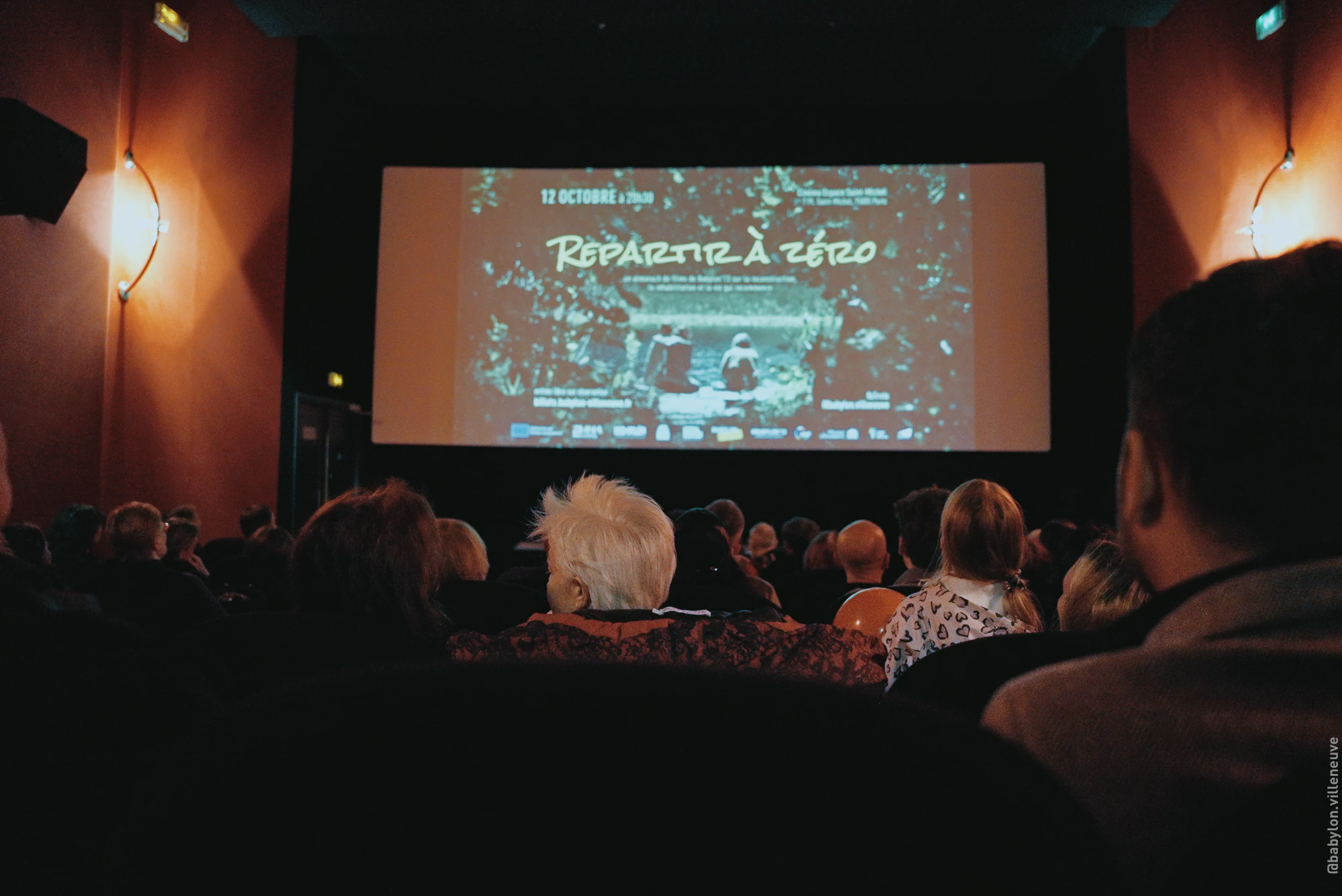
At first, these events attracted mostly Ukrainians, but by 2024, the audience had changed. The number of French attendees grew significantly—not because of political views or an active stance on supporting Ukraine, but out of genuine curiosity and a desire to understand what was really happening.
"We are seeing a great shift. By the end of the project's second year, our audience now recognises us, looks forward to new events, and follows us on social media. In 2023, more than half of our viewers were Ukrainians, but by 2024, the number of French attendees had increased dramatically," says Yehorov.
Cinema as a Response to Russian Propaganda
Russian narratives remain deeply embedded in France—not by coincidence, but as a result of decades of systematic investment by Russia into cultural influence, disinformation, and public opinion manipulation.
One of the most powerful tools of Russian information warfare in France was the television channel RT France, which began broadcasting in 2017. Even before its launch, French officials voiced concerns about its operations. President Emmanuel Macron accused RT France and Sputnik of running a propaganda campaign against him during the 2017 elections, describing them as ‘influence and propaganda outlets’.
Despite RT France being officially banned in 2022 following Russia’s full-scale invasion of Ukraine, the effects of its messaging are still evident in French society. In this context, documentary cinema has emerged as a powerful weapon against disinformation. Babylon Villeneuve provided French audiences with unfiltered access to the truth, allowing them to form their own understanding of Ukraine—not through propaganda, but through real human stories.
"For the fight against Russian propaganda to be statistically visible, we need more Ukrainian projects and greater involvement from local communities," says Yehorov.
Documentary cinema is one of the most powerful tools in combating disinformation. When audiences see not just dry news reports, but real stories of people caught in the heart of events, propaganda loses its grip.
"When people leave our screenings in tears, when they keep the director for hours after a Q&A session, expressing their gratitude, showing their respect, genuinely engaging with the filmmaking process and the fate of those featured in the films—we know that what we do is making an impact."
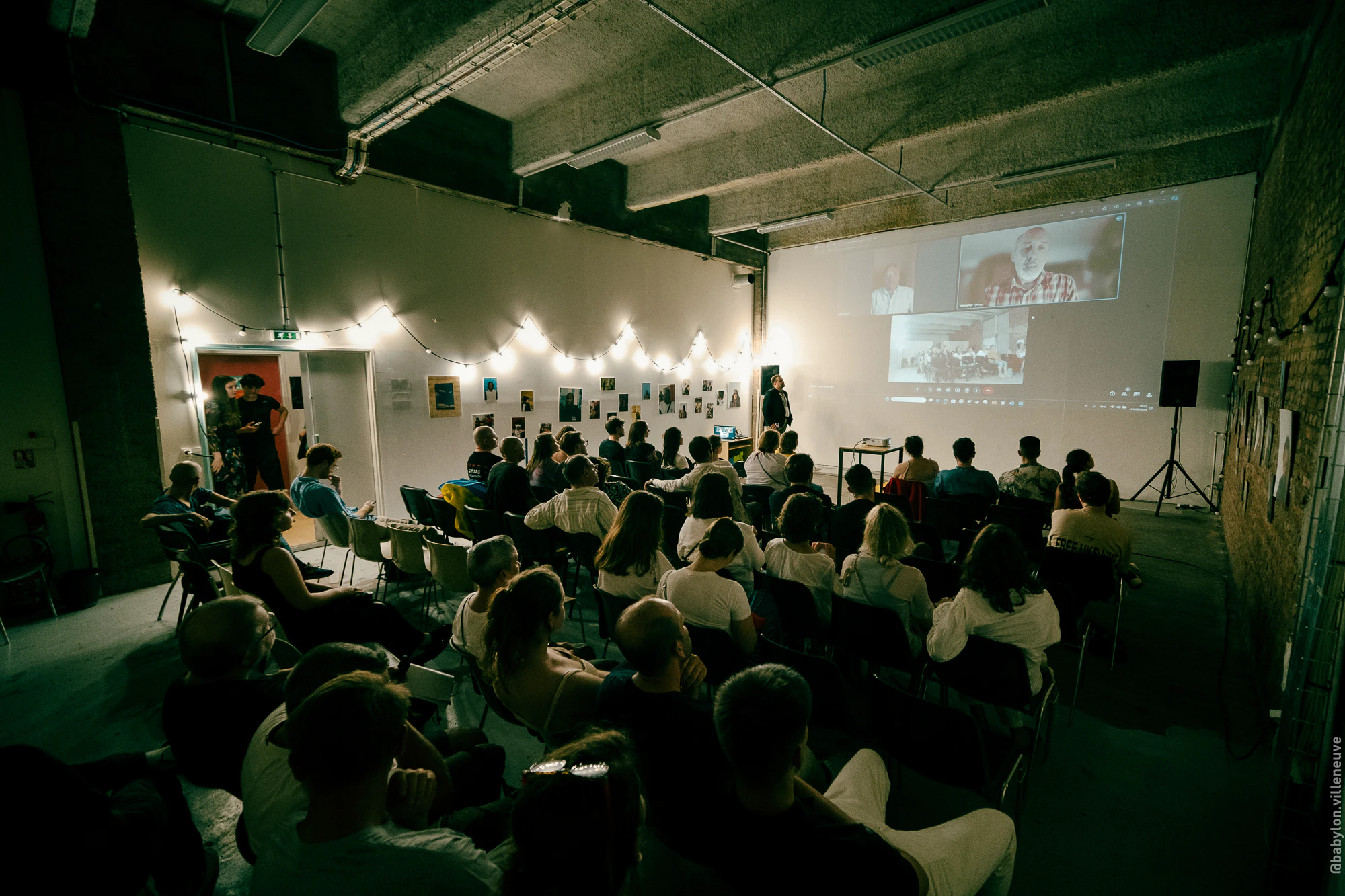
Babylon Villeneuve as a Hub for the Ukrainian Community in France
Ukrainian migrants in France are not just spectators of Babylon Villeneuve; they are an integral part of the project. Although there are no dedicated events exclusively for them, each screening becomes a gathering place for the Ukrainian community.
The Ukrainian diaspora in France has deep roots. According to the Embassy of Ukraine in France, there were around 150,000 Ukrainians living in the country before Russia’s full-scale invasion, many of them descendants of labour and political migrants. Since the 1920s, they have established theatre groups, drama societies, and today, they continue to preserve their cultural heritage through choirs, dance ensembles, and festivals.
However, after Russia’s full-scale attack in 2022, the Ukrainian community in France grew significantly. On the one hand, people fled death and bombardment, seeking temporary refuge. On the other, they actively began to organise and unite, ensuring that their language, culture, and history remained alive in exile.
"At every one of our screenings, there are always many Ukrainians, both from the long-established diaspora and from the new wave of arrivals. These screenings are incredibly important for both groups, as they allow them to meet, share experiences, and feel a sense of belonging. It reassures them that they are not alone," Yehorov explains.
Babylon Villeneuve collaborates with Union des Ukrainiens de France (UUF)—France’s oldest and largest Ukrainian diaspora organisation, founded in 1949—as well as with Maison Ukrainienne, a pro-Ukrainian association founded in 2022 by volunteers and displaced persons. Many other local organisations support the screenings, including: Centre Culturel d'Ukraine en France, Stand With Ukraine Europe, Ukraine CombArt, European Network in Solidarity with Ukraine. Spilka Paris, Tyzhden.fr, Cahiers du Cinéma, RFI.fr, as well as film festivals such as Kino Visegrad and MIST.
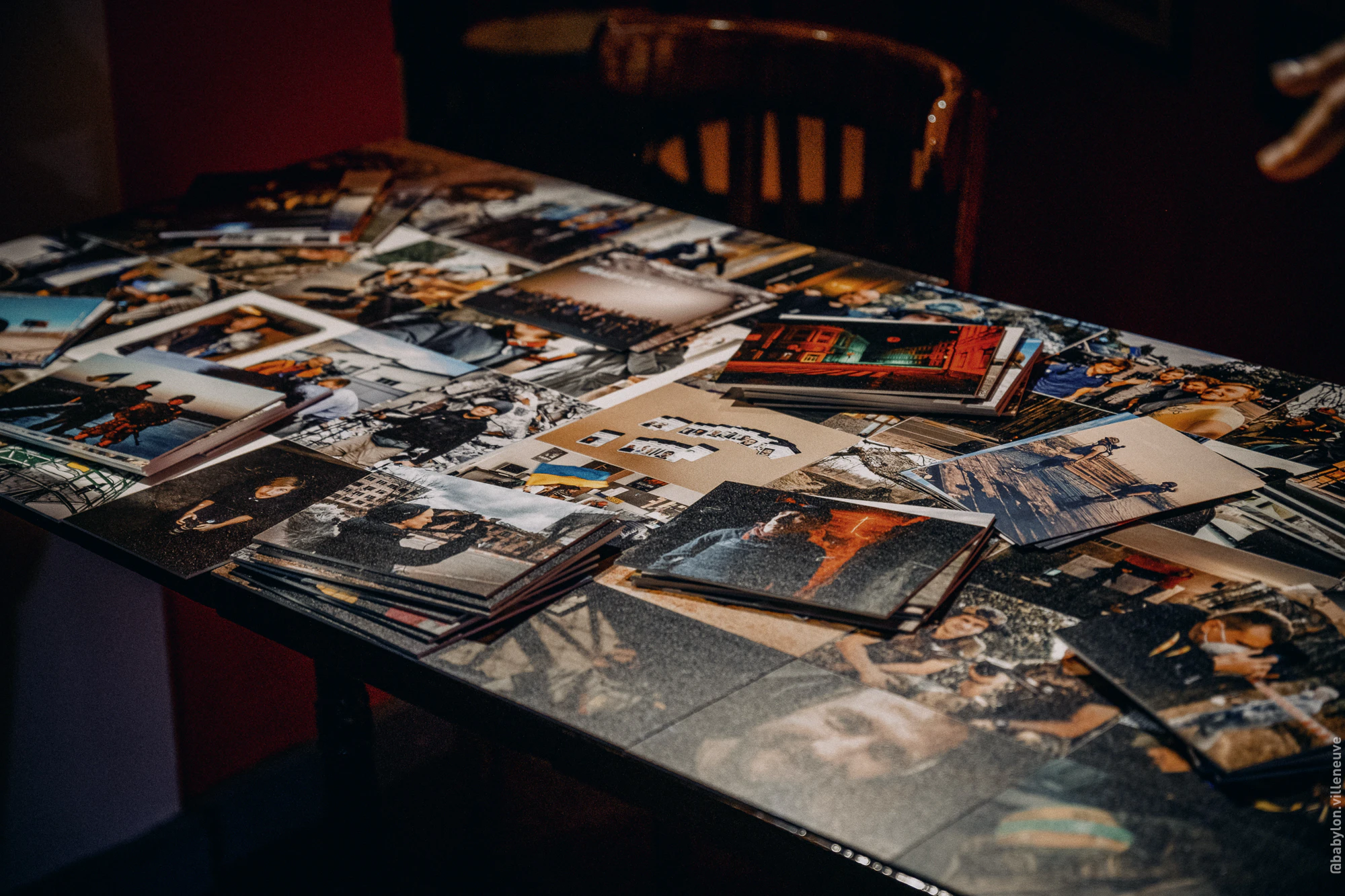
These partnerships have transformed the screenings into a platform for dialogue between Ukrainians and the French public. On multiple occasions, viewers left the cinema sobbing, having just seen their hometown—a city they had fled or left behind years ago, either in 2014 following Russia’s annexation of Crimea and the occupation of Donetsk and Luhansk regions, or more recently due to the full-scale war.
"These are open wounds for many viewers. We don’t set out to reopen them, but it happens naturally when people watch true documentary cinema—recognising themselves, their relatives, friends, colleagues, or neighbours on the screen."
explains Illia Yehorov, project manager of Babylon Villeneuve.
Some of the most moving moments occur when Babylon Villeneuve screenings coincide with mass pro-Ukrainian demonstrations in Paris. The Ukrainian community in France regularly organises solidarity rallies, demonstrating unity and engaging the French public in Ukraine’s struggle.
"These events truly unite the pro-Ukrainian community and help Ukrainians to hold on to their identity. They also show the French that we exist—as a cultural and civic entity, with our own voice and our own perspective on the world."
In this way, Babylon Villeneuve has not only popularised Ukrainian cinema, but has also become part of a broader movement—a fight for truth, cultural resilience, and international support for Ukraine.
Film Screenings as a Tool for Cultural Exchange
Babylon Villeneuve has proven to be more than just a film screening initiative—it has become a space for dialogue, where cinema serves as a starting point for discussions, reflections, and the search for new meanings. Each screening was accompanied by live interactions with directors, speakers, and audiences, creating an atmosphere where art was not just an emotional experience but a catalyst for thought and action.
"We always try to bring the director and speakers in person, and when that isn’t possible, we organise live online connections in the cinema. This engagement and audience participation is key to our events—it’s impossible to imagine a special screening without it," says Yehorov.
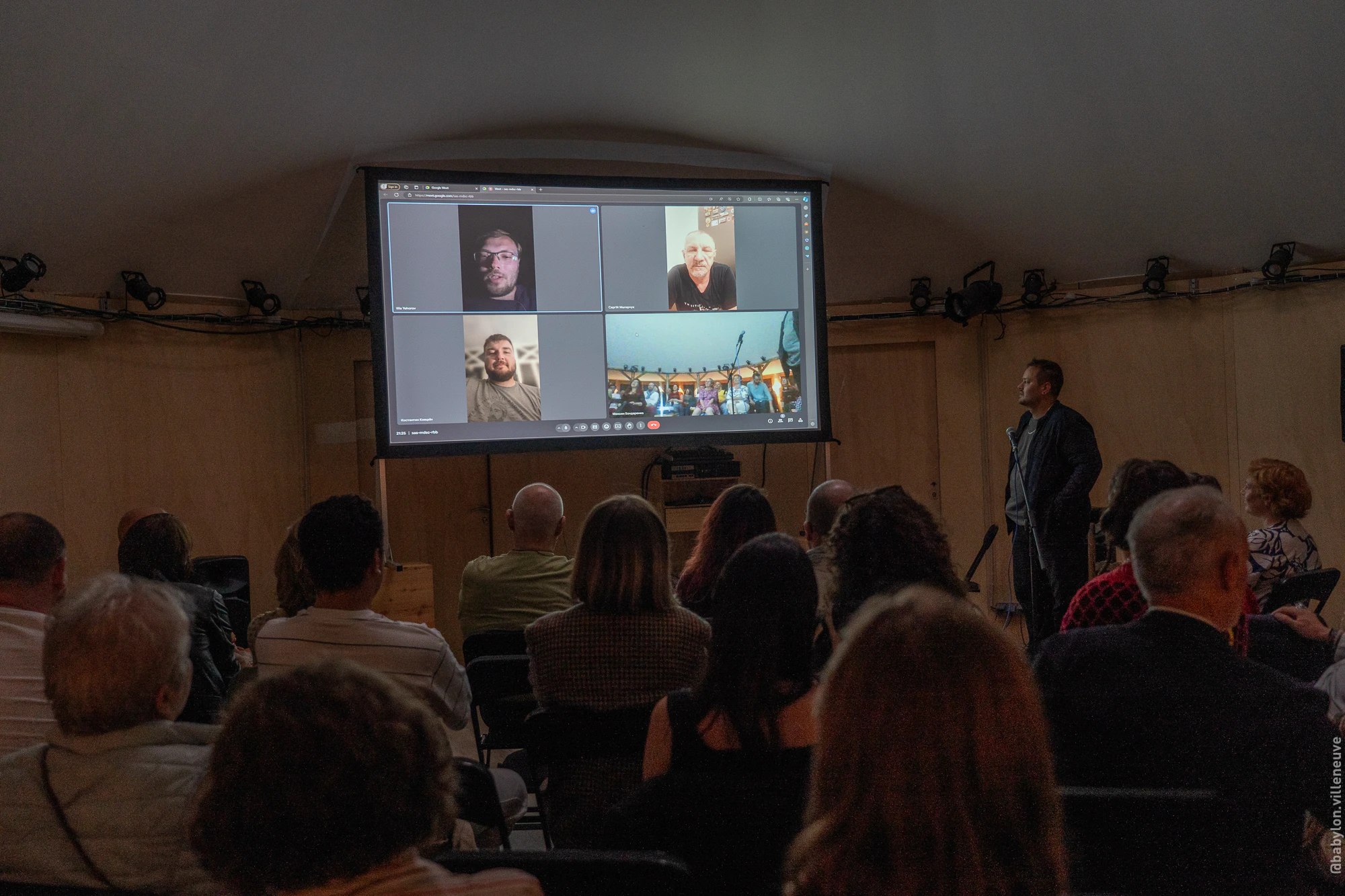
Not content with being passive viewers, audiences took full advantage of these opportunities, speaking with the filmmakers, sharing their thoughts, asking questions, and discussing the intricacies of production and the context of the stories unfolding on screen. Sometimes, these conversations stretched on for an hour or two after the screening, as attendees sought not just to listen to the director but to truly understand how their film reflected the realities of modern Ukraine.
A particularly significant moment in this cultural exchange was the panel discussion Rebuilding, which accompanied the screening of Starting from Scratch: An Anthology of Babylon’13 Films on Reconstruction, Rehabilitation, and New Beginnings. Rather than just a film screening, it was an open conversation about Ukraine’s future, bringing together leading architects and urbanists to discuss innovative approaches to reconstruction.
The panel featured renowned experts already engaged in Ukraine’s rebuilding process, developing new concepts for spatial planning and urban renewal. Martin Duplantier, founder of Martin Duplantier Architectes and president of AMO Architecture Association France, spoke about the need for a fresh approach to urban environments and spatial development in the aftermath of destruction. Svitlana Usychenko, an architecture and urbanism researcher at Ro3kvit: Urban Coalition for Ukraine, pointed out the importance of adapting Ukrainian cities to modern challenges.
Meryem Yoll, a volunteer with the Volonterska Foundation, shared her first-hand experiences of rebuilding residential housing in frontline regions of Kharkiv region, shedding light on the difficulties of reconstruction amid ongoing instability. Kateryna Lopatiuk, an expert in spatial planning working with ReThink and Restart, discussed international urban transformation strategies and how they could be applied in Ukraine. Dmytro Lobikov, founder of the Perforenta architecture firm in France and Switzerland, presented his vision for integrating modern European urban planning principles into Ukrainian reality.
This discussion was a crucial step in engaging French specialists in the conversation about Ukraine’s future, proving that reconstruction is not just a Ukrainian issue, but a global challenge that requires collective solutions. The French audience saw that behind every story of destruction lies not only tragedy, but also opportunity—opportunity to create a new, progressive approach to urban planning, architecture, and social development.
Challenges in Promoting Ukrainian Cinema in the Francophone World
Babylon Villeneuve has proven that there is a genuine interest in Ukrainian documentary cinema in France. However, it has also highlighted the difficulties of reaching audiences. The French film market operates according to its own internal logic, traditions, and linguistic barriers, all of which must be navigated.
One of the key challenges is content localisation. Ukrainian films are often made for domestic or English-speaking audiences, with only occasional adaptations for Francophone viewers. Simply adding subtitles is only half the job. For a film to truly resonate, the translation must be fluid and natural, ensuring that every phrase sounds organic to a French-speaking audience. In the case of films like The Kilometre, the adaptation process had to go even further—since much of the story unfolds through text messages, all on-screen text had to be graphically redesigned so that French viewers wouldn’t just read subtitles but could fully immerse themselves in the narrative.
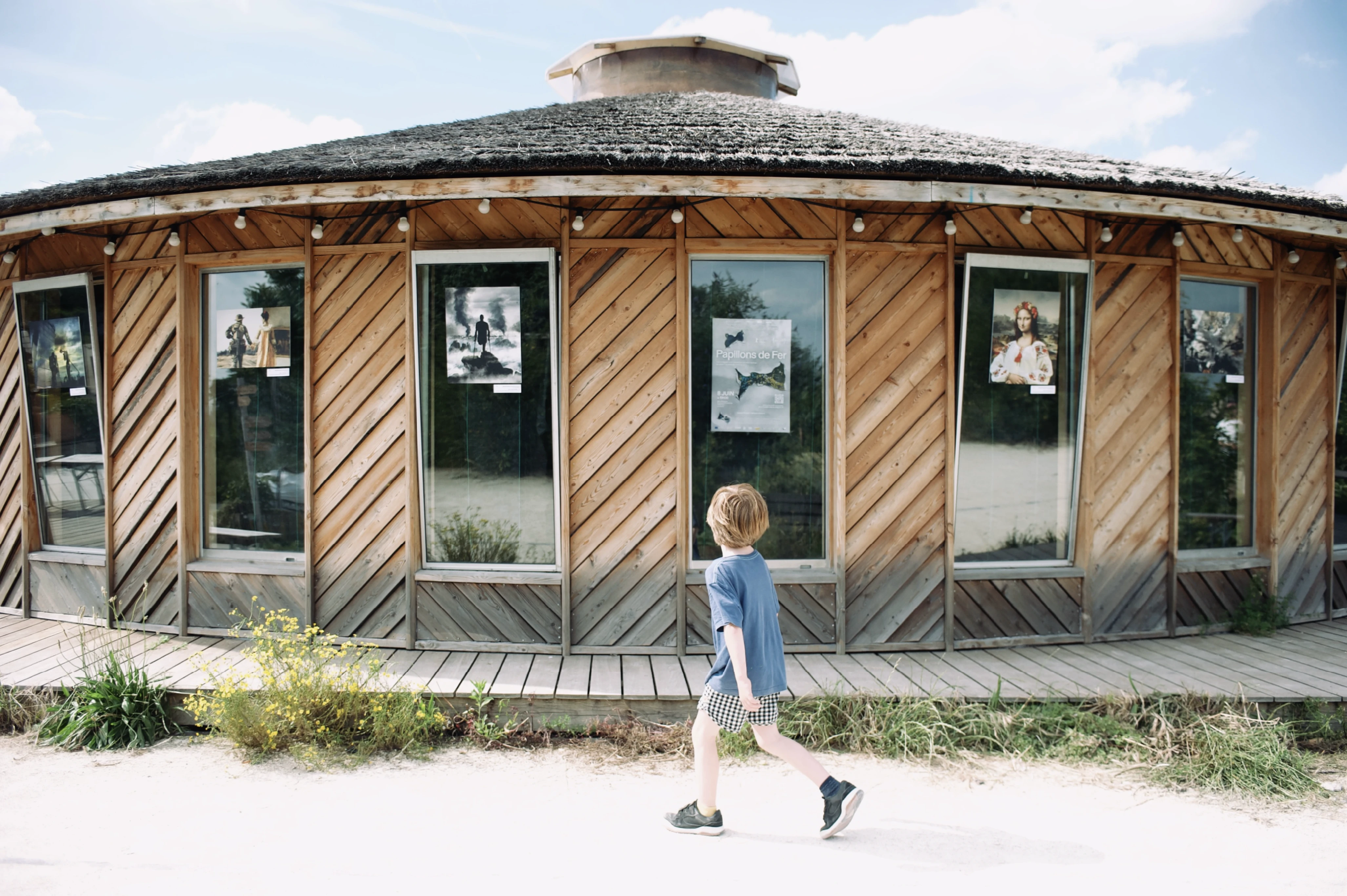
Another major obstacle is the promotion of Ukrainian films. Gaining visibility in the French cinema landscape requires tailored posters, trailers, and promotional materials designed to engage local audiences. This is a complex process, as it involves conveying Ukraine’s historical and social context without losing emotional depth, while also making the story accessible to viewers unfamiliar with the war or Ukraine’s broader situation.
But the greatest challenge remains Russia’s continued presence in the French film industry. Despite the full-scale invasion, Russian cinema has not disappeared from French screens. Russian films still feature in festivals and commercial releases, creating a difficult reality for Ukrainian filmmakers.
“Hosting a Ukrainian event in a cinema where Russian film posters are hanging—it’s surreal, to say the least. But unfortunately, most independent cinemas in France continue to tolerate Russian cinema,”
says Illia Yehorov, project manager of Babylon Villeneuve.
At the same time, there is a brighter side to this situation. Some French cinemas have taken a clear pro-Ukrainian stance, actively providing a platform for Ukrainian documentary films. Babylon Villeneuve has fought for its place in this space, demonstrating that Ukrainian cinema is not just another voice in the industry, but a powerful instrument of truth, resistance, and artistic diplomacy.
What's Next?
"Our plans are to keep moving forward—exploring new formats, building new partnerships, expanding into new cities and countries. Right now, we are in a transitional phase—one season has ended, and we don’t yet know when the next will begin. But when we return, it will be even more exciting and captivating than in previous years," says Yehorov.
Although Babylon’13 films are not created specifically for French audiences, the team continues to update their repertoire, translate new films, and adapt them for European viewers.
Audiences in France are already beginning to recognise Babylon Villeneuve, eagerly awaiting new screenings and actively supporting the initiative. But to truly transform the cinematic landscape, further efforts are needed—expanding the format, attracting new partners, and continuing to push boundaries. It is a difficult challenge, but it is precisely such challenges that shape history.
Author: Mariia Akhromieieva
ZMINA: Rebuilding is a project co-funded by the EU Creative Europe Programme under a dedicated call for proposals to support Ukrainian displaced people and the Ukrainian Cultural and Creative Sectors. The project is a cooperation between IZOLYATSIA (UA), Trans Europe Halles (SE) and Malý Berlín (SK).